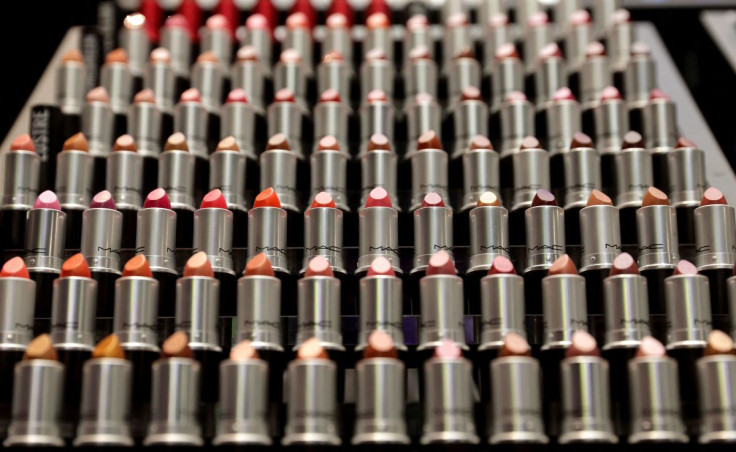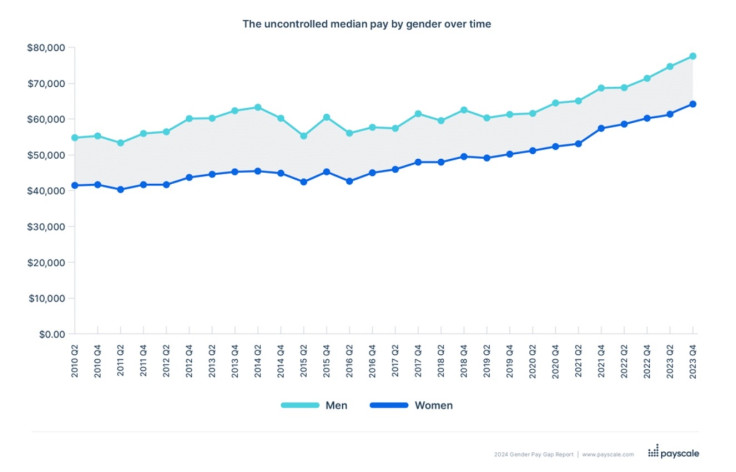Woman Allegedly Rejected for VP Role In Tech Company For Not Wearing Make-up During Interview
Women are also more likely to be denied a pay rise

This week, TikTok Content Creator Melissa Weaver sparked a debate amongst her followers about whether women wearing makeup should impact the outcome of an interview.
Weaver, who said that she used to work in recruitment, told her followers that she received a rejection letter after she had attended a job interview for a directorial position at a tech company.
The TikTok user went on to reveal that, after asking the recruiter for feedback, she was told: "While my background was exactly what they were looking for and my experience lined up with what they need for the position and my own goals and values align with the companies; she was concerned that, for my interview, I hadn't put enough effort into my appearance given the level of the role I was interviewing for."
"I did a blowout on my hair; I had on a nice top, a blazer, and some earrings."
The collared shirt and blazer were "freshly ironed, and I had freshly painted beige nails," Weaver added.
"But, I only had on chapstick. I didn't wear any makeup because I don't usually wear much makeup."
@_melissaweaver Does wearing make up to work make a difference? #work #corporate #career #interview #job #jobsearch #makeup #jobinterview #opinion #advice #women
♬ original sound - Melissa
TikTok users responded to the incident almost immediately after Weaver posted a video, which has since received more than 600,000 views.
One account wrote: "This would never be said to a man."
Another TikTok user asked: "That honestly feels like discrimination. Not hiring you based on your looks?"
Career Connector and Networking Expert Alexis Scott also responded to the viral debate.
Scott, who is also the founder of marketing brand The Fairy Job Mom, wrote: "My question is: Is that legal?!"
The makeup debate comes after data software brand Payscale released a report that addressed gender inequalities at work and found reasons why the gender pay gap is still prevalent.
The results, which were according to Employee Reported Data (ERD), were published on were published on National Equal Pay Day last month and shared in its collaborative 2023 Gender Pay Gap Report (GPGR).
The report, which analysed a survey conducted by Pew Research Centre, also found that it is more common for women attempting to negotiate higher pay with prospective employers to be turned down than men.
According to researchers, 38 per cent of women respondents said that, after asking for a salary boost, they received the employer's initial offer. However, 31 per cent of men who asked for more money were granted a wage rise.
This new data, which took into account both the controlled and uncontrolled gender pay gaps, suggests that the gender pay gap is nowhere near closing.

In the report, Carolina Aragão, a research associate at Pew, wrote: "Even though women have increased their presence in higher-paying jobs traditionally dominated by men, such as professional and managerial positions, women as a whole continue to be overrepresented in lower-paying occupations relative to their share of the workforce."
"This may contribute to gender differences in pay. Other factors that are difficult to measure, including gender discrimination, may also contribute to the ongoing wage discrepancy."
The report also found that in the US last year, when data was uncontrolled and gender was the leading factor taken into account, women took home just $0.83 for every dollar that men earned.
While the data shows a one-cent increase compared to last year's $0.82 median for women workers over a lifetime, the wage gap adds up to an average loss of $900,000.
"The uncontrolled gender pay gap, often called the 'opportunity gap,' tells us that high-earning, prestigious jobs favour men while women's work is less valued," Pew's Pay Equity Strategist Ruth Thomas said, going on to note: "The controlled gender pay gap tells us that women are still paid less than men for equal work, for no attributable reason," "Both metrics are important, and together they highlight the wealth and power imbalance that continue to exist between men and women in our society."
© Copyright IBTimes 2025. All rights reserved.






















